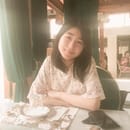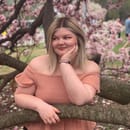Learning to enjoy reading at a young age has become rewarding as a college student. Studying the technacalities of language enhances my writing abilities, and interpreting the text’s meanings raises my critical analysis skills – all of which serves me well in college. My past is what has motivated me to choose English literature as my major, rather than computer science or business, and has pushed me toward a career dealing with publishing and writing. I have also considered the possible career choice as a teacher to facilitate my own discussions on writing pieces. But how did my childhood books define my future path? In an alternative universe, I might as well have wanted to become a doctor.
I attribute my passion of literature and writing to the countless books I perused through when I was in elementary school and middle school, before the school work started to pile up in high school. Despite the popularity of the Nintendo DS and the Wii when I was growing up, I never owned a console due to the potential distraction from my academics. Even though it was painful for me because it seemed that I was the only kid without a game console, I have to admit that it was effective in pushing me to different sources of entertainment. The only things remaining for me to do were to watch TV, play on the computer, and read books. After the loss of cable (before Netflix was a thing) and the restrictive amount of access to the computer set by my parents, I was left with not much else but books. Luckily, I inherited my older sibling’s bookshelf full of children’s and young adults titles that I still look back fondly on. Harry Potter and Percy Jackson were two of the most popular series during that time. I also became well versed in plenty of fairy-tales that were collected in a single large edition. I would be reading all of these in bed with a snack or two, as I still sometimes do today. When everything on the bookshelf was perused, it was time to hit the public town library. There, I can find any book that I could imagine.
The best present I received from my cousin, who was also a English teacher, was Matilda by Roald Dahl. That book kept me wanting more of his work, and soon enough I read every single Dahl book: The Witches, Charlie and the Chocolate Factory, The Giraffe and The Pelly and Me… But Matilda was the one I read over and over again, and I remember it as the title which intensified my desire to read more. Maybe it was influenced by Matilda’s own persistence to peruse through any book she got her hands on, traveling to and from her house and the library to read Great Expectations and War and Peace as a four-year-old. The most shocking scene in the story, where her crooked father takes her library book from her and mercilessly tears it apart, left me incredibly sympathetic to her parent’s abuse towards her love of reading. Because of that outrage, I turned some of those feelings into my own conscientiousness. Through reading about Matilda, a child genius, it captured a reaction inside me to advance myself as a reader, although even I knew as a seven-year old that I wasn’t going to become her level of prodigy and develop psychic powers.
Part of what enchanted me, as well as millions of other children, about Dahl’s work was the fantastical descriptive language. His stories weren’t sing-songy like Dr. Suess, whom I had also grown up with reading at an early age, but he had a particular narrative style that had great appeal for children – the words itself wasn’t boring or tedious to follow. That kind of whimsical language drove me further into the world of his stories. His work was among many other readings which raised my interest in fictional literature. It was especially the characters, such as Matilda, that captured my attention, because their perspectives allowed me to introspect into their motivations and feelings. Books have shown me many different ways of looking at human nature, which can be put onto a spectrum of good and evil or outside of it. I was at an age where my understanding of society was contained in an innocent bubble, so observing the complicated conflicts within each character fascinated me.
There is a bit of a blurred line between what constitutes a children’s book from a young adult book, and what children should and should not read. I was generally given complete independence on the material I had in my hands, whether the book was meant for children or not. The great part about reading as a child is the sense of discovery from learning unknown ideas, which other than from authors, are unspoken to someone of a young age.
I have reached adulthood, but it doesn’t mean that I am through with all the new findings. Still to this day, I continue to make discoveries about human philosophies and literary concepts within the stories I read in my classes. All of the English classes I took have further developed my reading skills and allowed me to think deeper into the details of the narrative. These strengths are also attributed to the strong emotional connection I have always had with books. Even though reading seemed to be a casual hobby during my childhood, it has grown to be something I am passionate about. This makes it easier for me as a college student. A clear interest enables me to focus on the kind of things I would like to do in the future. The admiration developed for creators like Roald Dahl is leading me towards a future that imitates these authors.



